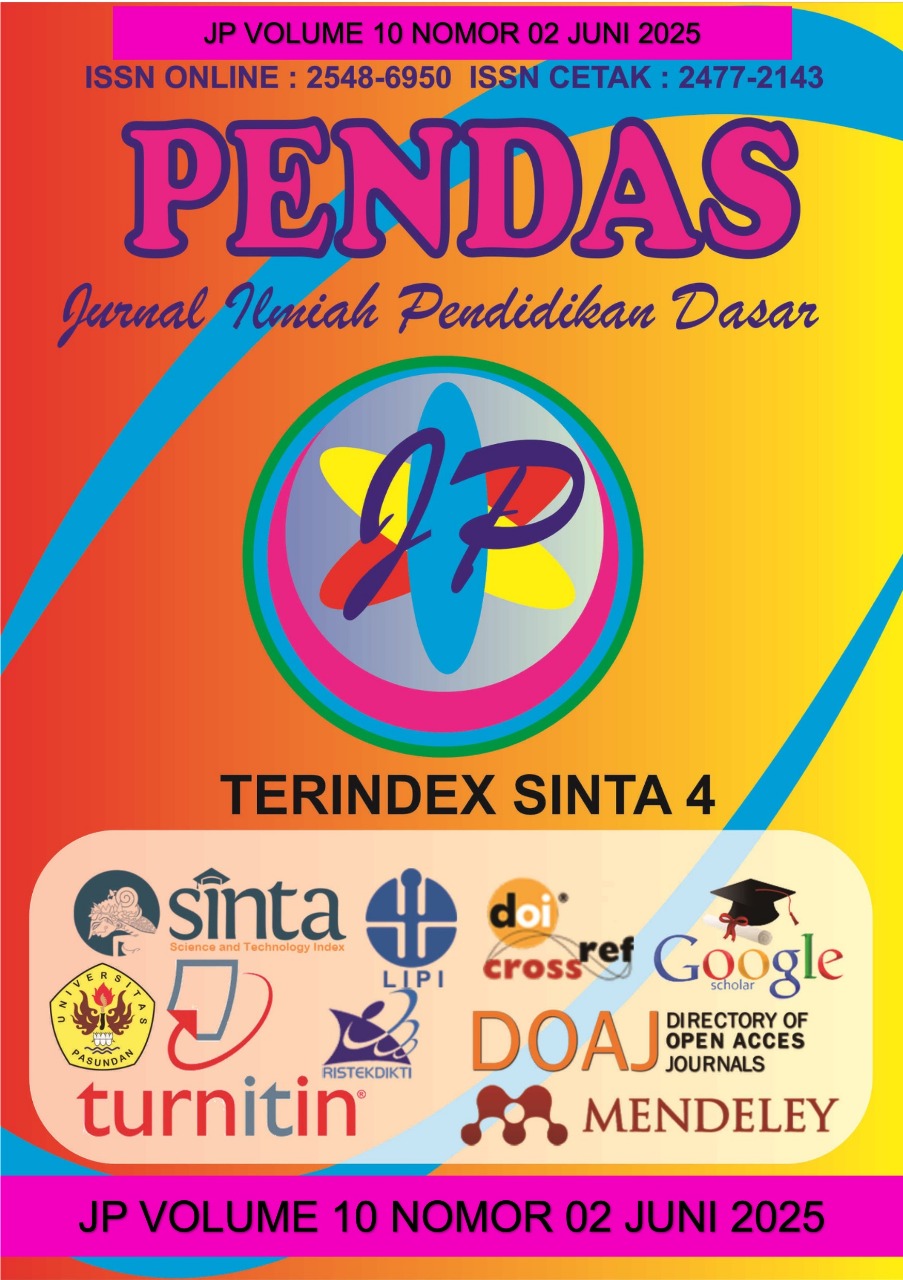PENGARUH PENGGUNAAN MEDIA PEMBELAJARAN E-LEARNING TERHADAP MOTIVASI BELAJAR SISWA
e-learning
DOI:
https://doi.org/10.23969/jp.v10i2.27189Keywords:
e-learning, instructional media, learning motivation, studentAbstract
This study aims to describe the impact of using e-learning instructional media on students' learning motivation through a qualitative approach using literature review. The data were collected from various secondary sources such as scientific journal articles, books, and previous research reports. The analysis shows that the use of e-learning-based instructional media contributes positively to enhancing students’ motivation to learn. E-learning is considered capable of creating a more interactive and flexible learning environment that aligns with individual learning styles. These findings highlight that the integration of technology in education can significantly increase students’ engagement and motivation.
Downloads
References
Al-Fraihat, D., Joy, M., Masa’deh, R., & Sinclair, J. (2020). Evaluating E-learning systems success: An empirical study. Computers in Human Behavior, 102, 67–86. https://doi.org/10.1016/j.chb.2019.08.004
Ali, W. (2020). Online and Remote Learning in Higher Education Institutes: A Necessity in light of COVID-19 Pandemic. Higher Education Studies, 10(3), 16. https://doi.org/10.5539/hes.v10n3p16
Arquero, J. L., Fernández-Polvillo, C., Hassall, T., & Joyce, J. (2015). Vocation, motivation and approaches to learning: A comparative study. Education and Training, 57(1). https://doi.org/10.1108/ET-02-2013-0014
Huang, R., Tlili, A., Yang, J., & Chang, T.-W. (2020). Handbook on Facilitating Flexible Learning During Educational Disruption: The Chinese Experience in Maintaining Undisrupted Learning in COVID-19 Outbreak. https://www.researchgate.net/publication/339939064
Ibrahim, D. S., & Suardiman, S. P. (2014). PENGARUH PENGGUNAAN E-LEARNING TERHADAP MOTIVASI DAN PRESTASI BELAJAR MATEMATIKA SISWA SD NEGERI TAHUNAN YOGYAKARTA. Jurnal Prima Edukasia, 2(1). https://doi.org/10.21831/jpe.v2i1.2645
Khafid, M. (2008). Faktor - Faktor yang Mempengaruhi Ketuntasan Belajar Akuntansi: Motivasi Belajar Sebagai Variabel Intervening. Lembaran Ilmu Kependidikan, 37(1).
Martin, F., Wang, C., & Sadaf, A. (2018). Student perception of helpfulness of facilitation strategies that enhance instructor presence, connectedness, engagement and learning in online courses. Internet and Higher Education, 37, 52–65. https://doi.org/10.1016/j.iheduc.2018.01.003
Means, B., Murphy, R., & Baki, M. (n.d.). The Effectiveness of Online and Blended Learning: A Meta-Analysis of the Empirical Literature.
Sardiyanah, S. (2020). BELAJAR DAN FAKTOR YANG MEMPENGARUHINYA. Jurnal Al-Qalam: Jurnal Kajian Islam & Pendidikan, 7(1). https://doi.org/10.47435/al-qalam.v7i1.187
Sun, J. C. Y., & Rueda, R. (2012). Situational interest, computer self-efficacy and self-regulation: Their impact on student engagement in distance education. British Journal of Educational Technology, 43(2), 191–204. https://doi.org/10.1111/j.1467-8535.2010.01157.x
Wotto, M., & Bélanger, P. (2016). A Framework on the Critical Success Factors of E-Learning Implementation in Higher Education: A Review of the Literature. https://www.researchgate.net/publication/309418519
Downloads
Published
Issue
Section
License
Copyright (c) 2025 Pendas : Jurnal Ilmiah Pendidikan Dasar

This work is licensed under a Creative Commons Attribution 4.0 International License.














































